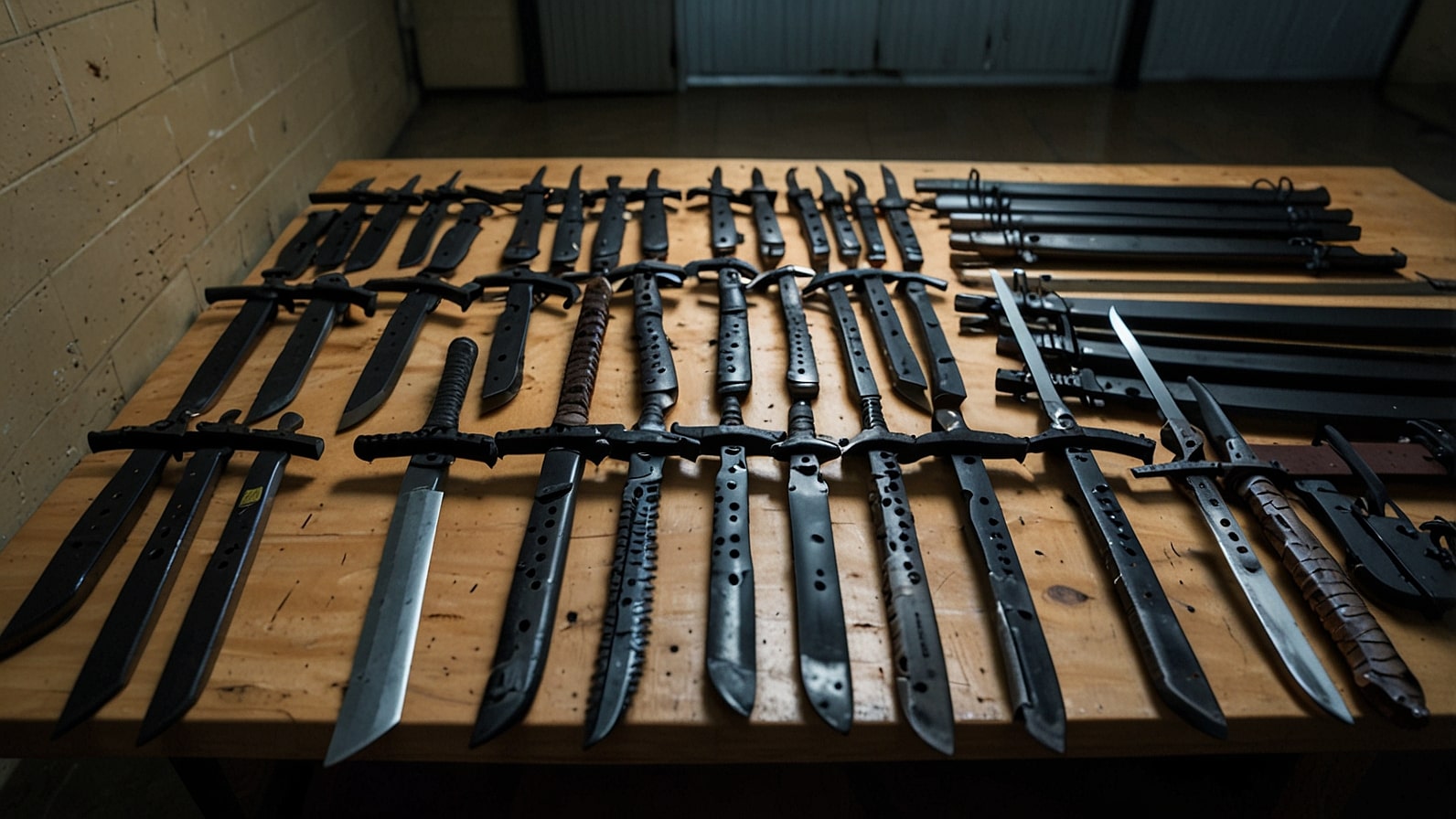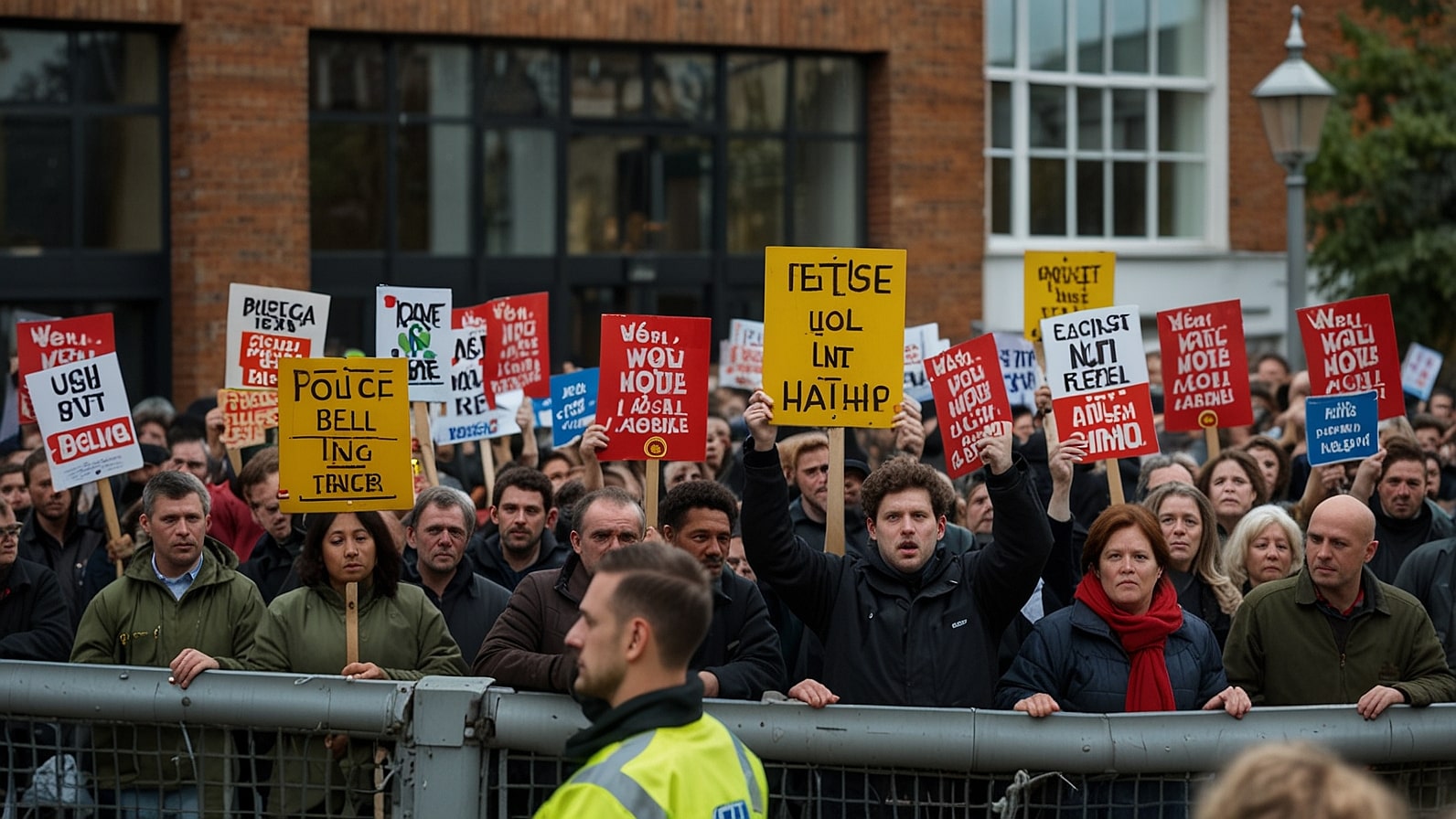The United Kingdom has banned ninja swords and other edged weapons on a national scale, which became a strong move in the government’s fight against knife crime. The law comes after a six-week amnesty period during which an estimated 10,000 firearms were turned in to the police across the country.
This measure, as a result of increased awareness of violent crime, is alleged to cut down on the availability of more deadly weapons and increase levels of safety. Yet, this initiative has raised concerns regarding implementation and ultimate effects.
A Counter to Violence That Seems to be Rising
Some of the bladed weapons being targeted are ninja swords, samurai swords, and other curved swords, which are commonly found in gang-related crimes. Home Secretary Yvette Cooper described the measure as an important step towards cutting down the level of knife crime, which has been on the increase in recent years.
According to official data from the Office for National Statistics, there were 7 percent more knife-related offences in 2024 compared to 2023 in England and Wales, and more than 50,000 such offences were documented. Cases such as the murder of a teenager involved in a fatal stabbing in Birmingham in the last year have fuelled the publicity and political pressure to do something.
Over 10,000 weapons were surrendered in various police zones in the UK during the amnesty period, which was initiated in June 2025. Metropolitan Police had a bountiful turnout, with one station in Croydon alone receiving over 500 blades.
The National Police Chiefs, the head of its knife crime program, Chief Constable Sarah Thompson, welcomed the people’s reaction, but added that the ban is just one aspect of a larger plan. It is essential to take these kinds of weapons out of circulation, but the causes of violence are something that has to be addressed, she stressed.
The Enforcement and Problems
The new legislation has outlawed the possession, sale, and even manufacture of ninja swords and other weapons of that nature, and those found in possession of the weapons out in the streets may face up to seven years in prison. Possession by individuals is also not allowed, although there are exceptions through registration of the weapons to owners who are collectors or reenactors of old times.
There is an increased stop-and-search power for policemen who will be authorized to implement the ban, especially in crime-prone neighborhoods. In Manchester, a similar scheme involving metal detectors and handheld devices in schools and other places of gathering has already proved to be effective, as reports suggest that the knife incidents since the scheme was implemented fell by 15 percent.
There are significant barriers to enforcement. Opponents argue that the prohibition will drive the illicit business underground, making it harder for law enforcement to monitor. Illegal trade using encrypted messaging systems has already occurred, selling banned knives, which casts a shadow on the law.
There is also a concern by some communities about more stop-and-search activity because it can bring about the idea of racial profiling. A 2024 report by the Independent Office for Police Conduct showed that Black people were six times more likely to be stopped in comparison to white people, resulting in a reservation of faith by some communities.
Community Action and Homesteading
The prohibition has attracted divided response. In places such as Bristol or Liverpool, where knife crime has been an acute problem that affects the communities, the population has embraced the action.
Jamal Khan, a community activist and brother of a victim, stabbed to death in 2023, said that the ban is a long time coming, but more programs to reach the youth have to be created. Seizing swords is a beginning, but even with that, children are still carrying knives because they don’t feel safe. We need to provide them with hope, not restrictions, he added.
On the other hand, there have been complaints on the scope of the ban as concerns martial arts collectors and practitioners. The British Kendo Association, which promotes traditional Japanese swordsmanship, pleaded that the new law discriminates against the cultural practices.
They have requested that there should be better guidelines that will shield genuine users without undermining the efforts of the government to curb the violence. There are wrangles between the Home Office and such groups, and efforts to improve regulations through consultation have been argued out.
The Wider Picture and Next Moves
The ninja sword veto is an aspect of a broader government plan to address knife crime, and this includes more funding towards violence reduction units and community policing.
In July 2025, the government invested 100 million pounds into the extension of youth centers and mentorship programs that would help discourage young people from joining gangs. There are also education campaigns in schools being introduced to increase awareness of the danger of carrying knives.
The move is being done at a time when there has been concern among Britons about safety; this has received impetus as there have been riots, especially at Rotherham, as well as reports of other acts of violence in different parts of the country.
Scholars note that, as much as the ban can help solve the current problem, knife crime is a multi-faceted issue rooted in socioeconomic undercurrents, psychological and even socialization issues, as well as gang culture.
Dr. Criminologist Emma Carter at the University of Oxford commented that a solution cannot just be a change in legislation. We have to invest in education, employment, and community integration to solve what makes young people feel obliged to carry a gun with them.”
Looking Ahead
Police forces are preparing to implement the new law as the UK adapts to it. The Home Office has promised to keep an eye on the effects of the ban in the upcoming year and is going to review it in summer 2026.
The role of the community will be paramount, and the capability of the government to juggle between enforcement and community trust. At this point, the ninja sword ban is a courageous measure to make the UK streets a safer place, but its success will depend on addressing the root causes of violence.



